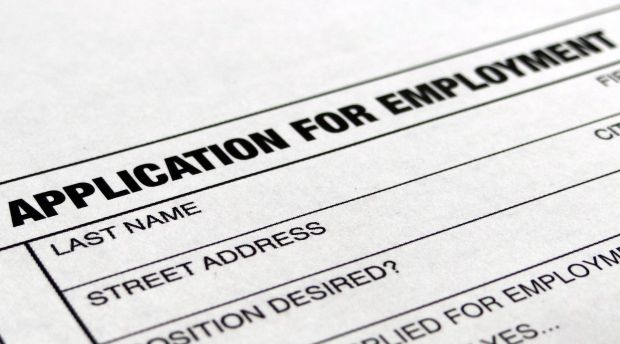What is a Behavioral Interview?
Post Views 8“Tell me about a time when…”
And the behavioral interview begins. We complete the phrase with a probing question, and voila!–the candidate is soon unveiled. With this type of question, we hope to qualify the candidate well and make a good hire. But we usually have no more than a few minutes to do it.
As the employment market sways from feverish highs to devastating lows, employers are increasingly anxious to maximize hiring resources. While technology can now bring you and your next hire within a mouse-click of each other, finding the candidate is only part of the equation. The rest lies in conducting a good interview. A behavioral interview, if done right, is one of the best ways to accomplish your hiring goals.
A behavioral interview is designed to use specific examples of past behavior as a predictor of future behavior. Many of the nation’s top companies have incorporated behavioral interviews into their hiring process, allotting large budgets towards research, development, and training.
Get With the Program
Maggie Gerson, a Senior Recruiting Manager, believes in this tool. “I find it very effective,” she says. “I use behavioral interviewing in all my interviews, and my peers do the same.”
Stacy, a Senior Human Resource executive, shares a similar view. “The nice thing [about a behavioral interview] is that it gives you specific situations where the candidate has a very special role that they can speak to. It gives you the dimension you’re after.”
Walk the Walk
Any method is only as good as its execution. You can maximize your interviewing efforts by keeping a few things in mind:
- Define your hiring goals. Whether a nanny or a CFO, know what you’re looking for in the candidate. Seem like a no-brainer? Maybe so, but it is all too common for employers to find themselves suddenly hurled into the hiring process. When possible, take a step back and examine your motives. Aside from checking the job description for a list of desired skills, write down several behavioral traits that you feel describe the perfect candidate.
- Develop good questions. Use your list of desired behavioral traits to develop the appropriate questions. Examine how much each question relates to the targeted trait, and how specific the trait is to the job. And then there’s the science of phrasing the question. You always want to keep in mind that behavioral interviews look to past behavior as an indicator of future behavior. Hence, yes-or-no questions are not the ones to ask. “Do you have good judgment?” is not a behavioral question. “Tell me about a time when you had to exercise good judgment” is. This instructs the candidate to offer a specific example rather than a buttered-up textbook response.
- Set the ground rules. “I let them know what to expect,” Gerson says, stressing the importance of prefacing the interview. Tell the candidate that you are about to ask them a series of questions to which they should respond with specific instances. This puts you and the candidate on the same page. It may also ease any resistance the candidate may feel towards this rather untraditional interviewing style. And proper prefacing should, in most instances, ensure that you get you the type of answers you need.
- Take notes. The experts cannot stress the importance of this enough. Because you are fully engaged during the interview, taking notes is your back-up plan to remember the candidate’s answers. It is a good way to reflect upon the candidate’s answer–even if some time passes between the interview and your assessment. Find the note-taking style that suits you and use it religiously. Since behavioral interviewing depends so much on what is said, keeping a close record holds tremendous value.
- Be consistent. Another no-brainer, but a potential area for oversight. A behavioral interviewing method is most effective if used uniformly and consistently on all candidates for the job. Stay on track with the list of questions you developed earlier in the process.
Beware the Pitfalls
Unless managed, behavioral interviews can be lengthy. It is a challenge to cover all essential points and still be mindful of your time. Another concern is maintaining the integrity of your interviews. In order to make sure that the questions and assessments are truly valid, some companies consult with psychologists and benefit from their expertise. However, this can be costly and time consuming.
Finally, one of the biggest challenges is to train someone on what questions to ask, how to ask them, and what to look for in the answers. Whether formal or informal, proper training on conducting behavioral interviews will ensure maximum efficiency when the method is applied.
What is a Behavioral Interview? by Granted Contributor



 Do Psychological Tests Make a Difference in Getting a Job?
Do Psychological Tests Make a Difference in Getting a Job?  Why Am I Not Successful in My Job Interviews?
Why Am I Not Successful in My Job Interviews?  What Am I Doing Wrong in My Interviews?
What Am I Doing Wrong in My Interviews?  Answering Salary Questions during Phone Interviews
Answering Salary Questions during Phone Interviews  Must You Disclose Your Salary History?
Must You Disclose Your Salary History?  11 Common Salary Issues People Face
11 Common Salary Issues People Face  Answer These 3 Questions to Land Your First Job
Answer These 3 Questions to Land Your First Job  Top Job Interview Questions and Answers
Top Job Interview Questions and Answers